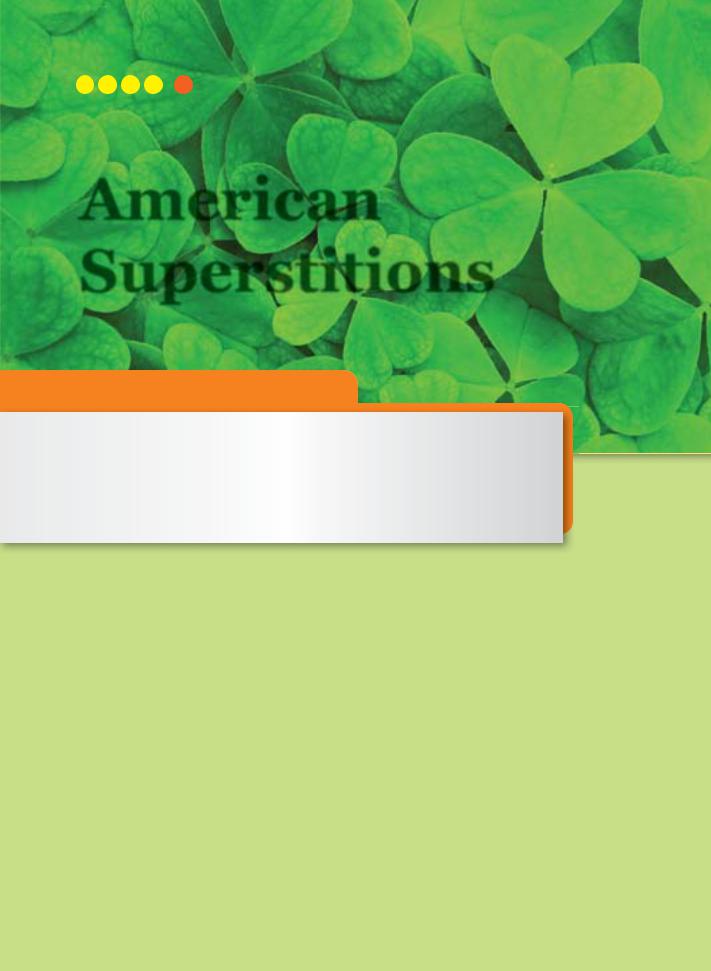
Reading_for_the_Real_World_1_2nd_Ed
.pdf
1 S E C O N D E D I T I O N
Reading for the Real World 1 Second Edition
Casey Malarcher · Andrea Janzen · Adam Worcester
© 2009 Compass Publishing
All rights reserved. No part of this book
may be reproduced, stored in a retrieval system, or transmitted in any form or by any means, electronic, mechanical, photocopying, recording, or otherwise, without prior permission
in writing from the publisher.
Acquisitions Editor: Jordan Candlewyck
Content Editor: Rob Jordens
Copy Editor: Kelli Ripatti
Cover/Interior Design: Design Plus
email: info@compasspub.com http://www.compasspub.com
The authors of this book would like to acknowledge the following writers for contributing materials to this series: Michael Souza, Michael Pederson,
Paul Edmunds, Paula Bramante, Kandice MacDonald, Barbara Graeber
ISBN: 978-1-59966-420-0
15 14 13 12 11 10 9 8 7 6
14 13 12 11 10
Photo Credits
pp.5, 6, 7, 10, 17, 18, 19, 22, 23, 24, 25, 28, 30, 31, 34, 35, 36, 37, 40, 41, 43, 46, 47, 48, 49, 52, 53, 54, 55, 58, 60, 61, 66, 71, 72, 73, 76, 83, 84, 85, 88, 89, 91, 94, 95, 96, 97, 100, 101, 102, 106, 107, 108, 109, 112, 115, 118, 120, 124, 125, 127, 130, 131, 132, 133, 136, 137, 139, 142, 143, 144, 145, 148 © Shutterstock, Inc.
pp. cover, 29, 59, 64, 65, 67, 70, 82, 90, 100, 103, 126, 138 © iStock International Inc. pp. 42 © BigStockPhoto
pp. 113, 114, 119, 121 © Yonhap News pp. 77, 78, 79 © Jupiterimages Corporation

C o n t e n t s
Unit 1 |
|
Strange & Unusual |
|
Reading 1 : |
American Superstitions |
Reading 2 : |
Bigfoot / 11 |
/
5
Unit 2 |
|
Computers & Technology |
|
Reading 1 : |
The History of the Internet |
Reading 2 : |
Gamers: Image and Reality |
/ /
17 23
Unit 3 |
|
|
Health & Medicine |
|
|
Reading 1 : |
Body Mass and Weight |
|
Reading 2 : |
Studying Headaches |
/ |
/ 35
29
Unit 4 |
|
|
Social Issues |
|
|
Reading 1 : |
High School Dropout Rates on the Rise |
|
Reading 2 : |
Where Are All the Boys? |
/ 47 |
/
41
Unit 5 |
|
|
Environmental Issues |
|
|
Reading 1 : |
Sixth Extinction / |
53 |
Reading 2 : |
A Plan to Curb Greenhouse Gases |
|
/
59
Unit 6 |
|
|
Law & Crime |
|
|
Reading 1 : |
The History of the Death Penalty |
|
Reading 2 : |
Bounty Hunters |
/ 71 |
/
65

Unit 7
Language & Literature
Reading 1 : |
King’s March on Washington Address / 77 |
Reading 2 : |
Desiree’s Baby By Kate Chopin / 83 |
Unit 8
Space & Exploration
Reading 1 : |
The Space Race / 89 |
Reading 2 : |
Asteroid Impacts on Earth / 95 |
Unit 9
Sports & Fitness
Reading 1 : |
Cheating in Sports / 101 |
Reading 2 : |
Gi / 107 |
Unit 10
People & Opinions
Reading 1 : Barack Obama’s Keynote Address at the Democratic National
|
Convention / |
113 |
Reading 2 : |
Anita Roddick |
/ 119 |
Unit 11
Cross-Cultural Viewpoints
Reading 1 : |
Ideas About Beauty / 125 |
Reading 2 : |
Bribery or Business as Usual? / 131 |
Unit 12
Business & Economics
Reading 1 : |
Adventure Tours for Charity / 137 |
Reading 2 : |
Rating Companies / 143 |

U N I T 1 Strange & Unusual 1
American
Superstitions
Pre-Reading Questions
Think about the following questions.
1.What are some good-luck superstitions?
2.What are some bad-luck superstitions?
3.Do you follow or believe any of these superstitions?
Vocabulary Preview
Match each word or phrase with the correct definition.
1. |
clover |
a. inclined to believe in chance or magic |
2. |
conduct |
b. a small plant with white berries; a Christmas decoration |
3. |
confess |
c. a small flowering plant, usually with three leaves |
4. |
optimistically |
d. to do |
5. |
mistletoe |
e. to admit |
6. |
superstitious |
f. positively; in a positive way |

6
American Superstitions  Track 1
Track 1
|
very culture has superstitions. Some people |
|
believe them more than others. Even in our |
|
Emodern technological society, superstitions |
|
still hold a powerful influence. Most people seem to |
5 |
outgrow them. But how many people continue to |
|
|
|
believe (or at least act like they believe) these |
|
superstitions as adults? |
|
A survey conducted for the journal American Demographics by the research |
|
firm Market Facts found some surprising results. In modern America, where |
10 |
superstitions are seen as nothing more than the beliefs of a weak mind, 44 |
|
|
|
percent of the people surveyed still admitted they were superstitious. The other |
|
56 percent claimed to be only “optimistically superstitious,” meaning they were |
|
more willing to believe superstitions relating to good luck over ones related to |
|
bad luck. For example, 12 percent of those who said they were not really |
15superstitious confessed to knocking on wood for good luck. And 9 percent confessed they would pick up a penny on the street for good luck. A further
9 percent of non-believers also said they would pick a four-leaf clover for luck if they found one. And some still believed in kissing under the mistletoe for luck.
Of the 44 percent of Americans who admit their superstitious beliefs, 65
20percent said they were “only a little” superstitious, 27 percent were “somewhat” superstitious, and 8 percent were “very” superstitious. Among this group of believers, some interesting differences appeared when the men and women were considered separately. In the survey, women comprised 60 percent of the entire superstitious group, seeming to indicate that women tend to be more
25superstitious than men. However, more than half (64 percent) of the “very” superstitious believers were male.
Additionally, age also showed significant differences between the believers and non-believers. More young people admitted their superstitious nature than
23 comprise --- to make up
24 indicate --- to show; to suggest
27 significant --- major; large

32 expect --- to guess; to consider likely
35 respondent --- a person who answers a survey
37minimal --- low; of the smallest amount
38common --- usual; occurring frequently
40check --- to mark
41 |
widely --- over a large range or area |
51 |
cross one’s fingers --- to put the second finger over the first finger |
older people in the survey. For people between the ages of eighteen and twenty-
30four taking the survey, 64 percent claimed to be at least a little superstitious. But for seniors 65 and older, only 30 percent admitted to believing any superstitions.
It might be expected that people with more education would be less superstitious, but results from the survey indicated almost equal numbers of believers between those with and without college degrees. Of those survey
35respondents who never finished or only finished high school, 42 percent reported being at least a little superstitious. For those with a college education, 47 percent claimed the same minimal level of belief.
In the survey, ten common superstitions were listed for the people who
responded. Of these superstitions, five were related to good luck and five to bad
40luck. Respondents were then asked to check the ones they believed. Of the superstitions in the list, good-luck superstitions were more widely held. The top superstitions related to good luck that most people followed “very much” were picking four-leaf clovers (79 percent), knocking on wood (72 percent), picking up pennies (70 percent), and crossing fingers for luck (59 percent). Of the bad-luck
45superstitions, the most common belief was that breaking a mirror brought bad luck (82 percent). Other bad luck superstitions listed in the survey included seeing black cats, walking under ladders, seeing the bride before the wedding, and doing
anything on Friday the 13th.
50 Many people would like to think it could not hurt to do something like knocking on wood or crossing your fingers bring a little luck. After all, who doesn’t want a little luck?
Reading Time |
_______ minutes _______ seconds |
574 words |
7

8
Reading Comprehension
AMark each statement as either true (T) or false (F) according to the reading.
1.____ The majority of people said they do not believe in bad luck.
2.____ None of the non-believers think four-leaf clovers are lucky.
3.____ It is bad luck to climb a ladder.
4.____ Few people thought that breaking a mirror was bad luck.
BChoose the best answer.
1.Which of the following would bring bad luck?
a.A cracked mirror
b.Crossed fingers
c.Money on the street
d.Walking under mistletoe
2.Which of these good-luck traditions was most commonly followed by non-believers?
a.Avoiding black cats
b.Kissing under mistletoe
c.Knocking on wood
d.Picking up money
3.Who would be most likely to admit being superstitious?
a.A nineteen-year-old, female, college student
b.A thirty-year-old, male, high school drop-out
c.A forty-year-old, male, college graduate
d.A seventy-year-old, female, college graduate
CFor the next two questions, look for the answers in the passage and write them on the lines provided.
1.What was the main purpose of the survey?
______________________________________________________
______________________________________________________
2.What are the different groups of superstitions?
______________________________________________________
______________________________________________________

Summary
Fill in the blanks with the phrases from the list. Use each phrase only once.
in good-luck |
breaking a mirror |
confessed to being |
picking four-leaf clovers |
who responded to |
the superstitious beliefs |
A marketing research firm conducted a survey to find out information about
1 _________________ of Americans. It was found through the survey that many Americans actually 2 _________________ at least “somewhat” superstitious. Most people see themselves as “optimistically superstitious,” meaning they believe more 3 _________________ than bad-luck superstitions. Some common good-luck superstitions in the survey included 4 _________________ and kissing under mistletoe. Bad-luck superstitions on the survey included walking under a ladder and 5 _________________ . Of the people 6 _________________
the survey, young people said they were superstitious more often than old people.
Vocabulary Extension
Here are six words that are related to the topic but are not in the reading. Fill in each blank with the best word from the list. Use each word only once.
horoscope |
curse |
omen |
fate |
astrologist |
faith |
1.An __________ can tell your fortune by the stars.
2.Oh, no! I just saw a crow. That’s a bad __________.
3.According to my __________ in the newspaper, I will have a good day today.
4.Have __________! Everything will turn out all right in the end.
5.The archeologist had bad luck after he opened the tomb. He received the mummy’s __________.
6.I can’t do anything about it. It’s my __________ to be in this situation.
9

10
Supplemental Reading
“Unlucky” Number 13  Track 2
Track 2
1998 was a very bad year, especially for people who believed the number 13 is an unlucky number. In 1998, three months had a Friday that
fell on the 13th of the month--February, March, and
5November. That is actually the most Friday the 13ths possible in a year.
The origin of the number 13 being an unlucky number goes back to the time of Jesus’s death. At the last supper, Jesus gathered his twelve followers for a special meal, but including himself, there were a total of 13 people at the table.
10 |
One of those followers later betrayed Jesus and turned him over to be killed. |
|
|
|
Today, superstitions about the number continue to worry people. As a |
|
result, most American skyscrapers do not have a 13th floor. In addition, most |
|
airplanes lack a 13th row because few customers would buy tickets to sit there. |
|
Perhaps surprisingly, when asked, only 13 percent of the American population |
15admit they believe that Friday the 13th is an unlucky day. The percentage is slightly higher among young people. About 30 percent of Americans between the ages of eighteen and twenty-four say they try to generally be a little more careful on a
Friday falling on the 13th. Interestingly, the nine movies of the horror series Friday the 13th were all released during this age group’s formative years (1980-
201993). Perhaps the series has had a greater effect on people than anyone would like to admit.
Discussion
Discuss the following questions. 1. Can superstitions ever be helpful?
2. Do you have any item that brings you luck? What is it and where did you get it?
